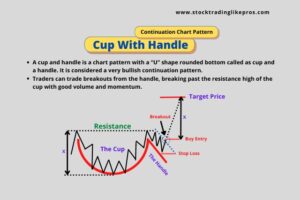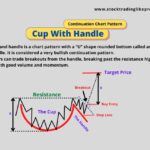What is a Trading Plan & why it is needed?
A trading plan is the comprehensive plan that covers every facets of your trading, right from your trading purpose to management of your trades.
Writing down a sound plan is key to become a professional trader. It is set of instructions to yourself to take action in a planned manner in every steps of your trading journey.
Following a trading plan does not guarantee trading success every time but it guides you
- To plan your trades better
- Control your losses in a proper manner
- Come out of bad trades quicker
- Stay disciplined
- Increases your trade winning probabilities.
More importantly, a stock trading planner helps you execute trade in a mechanical manner, without your emotions affecting your trading decisions. It helps you avoid taking fly by decisions because of your momentary emotional surge.
Fly by decisions in trading is a big NO in trading and root cause of all trading failures. All decisions should be a part of your trading plan.
A proper plan helps to trade in a disciplined manner keeping you in business for a longer time. It helps in quantifying the performance & proper evaluation of your trades to keep losses under control and maximize the winners.
Making a Trading Plan is the first step you take before you start placing your order.
Whether it is a day trading, swing trading or any trading styles, it should be based on your own technical or fundamental research.
Your plan should be tailor made to suit your personality, ability and resources.
So, what should your Trading plan consists of?
Trading Goals
Your goals for trading should be stated clearly in the plan and should answer the following questions
- What is the purpose of your trading?
- Why do you want to become a trader?
- Are you trading for a living?
- What are your daily, weekly, monthly goals?
- How much you intend to earn in a week or month?
Trading Style & View
- Are you a systems trader or use your own discretion for trading (usually called discretionary traders)
- What is your trading view – Short Term, Medium Term or Long Term?
Your Market, Instruments and Timeframes:
Today’s trading markets are not limited to Stock. It could include Bonds, Commodities, Currencies, ETF, Futures, Options etc.
Your plan should include the markets you intend to trade, instruments and your timeframes depending on whether you are an intraday, swing or positional trader.
For e.g. you could be Futures market day trader and usually trade Banking Sector Futures.
Being a day trader, you could use 1 min timeframe for your entry, 5 mins for exit or 30 mins to check trend.
All this should be clearly specified in your trading plan.
Trading Platform & Tools
The plan should also specify your trading broker & platforms, Charting Softwares, indicators, data feeds etc…
Position Sizing
The plan should specify clearly on the position sizing of your trades. If you are a newbie trader, it is recommended to start with a small lot and then increase it gradually as you get more experienced and more successful in your trades.
Your Trading Strategies, Set Ups & Entries
- Strategies to opt depending on market conditions – trending or non trending
- Set Up – What are your set ups and process to find your set ups daily?
- Entry Rules
- Exit Rules
Risk and Money Management
This should be the most important part of your trading plan. Risk Management plan should help you control your losses and Money Management deals in maximizing your profits.
Other points that can be included in the plan
Daily Pre-Market Routine
- Recording Trades
- Post Trade Analysis
The plans need not necessarily be same for every trader. Rather, Traders should have their plan suiting their personality, skills and resources.
In fact, a trader trading multiple markets of course has to use different trading plans.
Maintain a Trading Journal
Trading Journal is required to record and review all your trades on a daily basis. This helps to track how your trades are performing.
Mostly important, it helps you keep a note of your mistakes. This record assists you not to repeat the mistakes again and inculcate discipline in your trading.









